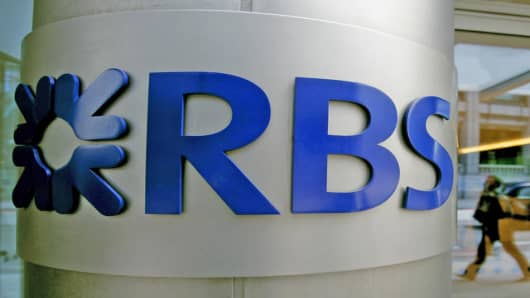Royal Bank of Scotland reported a smaller-than-expected writedown of 206 million pounds ($334 million) on toxic assets in the third quarter but said it faces more this quarter and bad debts are rising sharply, sending its shares lower.
RBS, which is taking 20 billion pounds of emergency capital from the government, said it wants to be in a position to resume paying dividends in 2010, which would require it to buy back 5 billion pounds of government preference shares.
"We do regard those preference shares as unnecessary and expensive debt and we want to remove them as soon as it is prudent and practicable," said Stephen Hester, incoming chief executive.
"We are hopeful that we are able to remove the dividend block in time for fiscal 2010," he told reporters on a conference call.
RBS said a worsening economy, difficult financial markets and moves to reduce risk on its balance sheet would have an adverse effect on its fourth-quarter and full-year results and more writedowns are likely.
RBS wrote down 5.9 billion pounds on structured product assets in the first half, and analysts had forecast it could write off billions more.


